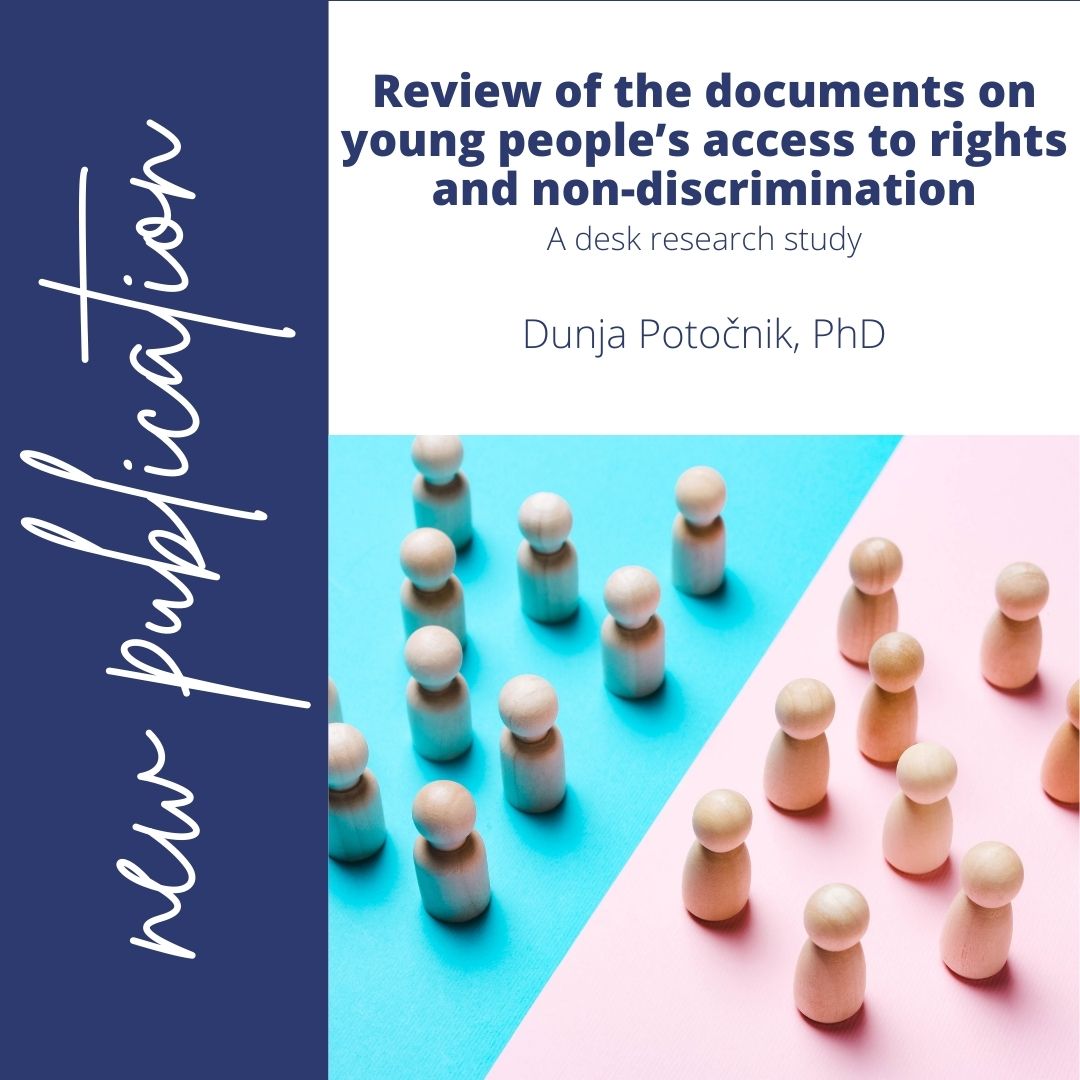 | | | | | | Young people's right to assemble peacefully - a mapping study | | | |
The EU-Council of Europe Youth Partnership has just published a mapping study on "Young people's right to assemble peacefully", by author Maria-Carmen Pantea, PhD.
Why do young people's rights to gather peacefully and to freely form, join and be active in associations or trade unions matter?
Where are these rights threatened? Who is (more) affected? Who limits young people's right to assemble peacefully? Why? How? What works to remove these obstacles?
To find out more, read "Young people's right to assemble peacefully - a mapping study". | | | |
| |
|
| |  | | | | | | Review of the documents on young people's access to rights and non-discrimination | | A desk research study
| | Today, the situation of young people and their potential for realising their aspirations and enjoying a fruitful and fulfilled life are challenged by economic, social, environmental and health problems, and by the covid-19 pandemic.
Young people are facing restrictions in access to education, high unemployment rates, the scarcity of leisure and sport activities and forced dependency on family.
Read the "Review of the documents on young people's access to rights and non-discrimination - A desk research study", by Dunja Potočnik PhD. | | | |
| |
|
|